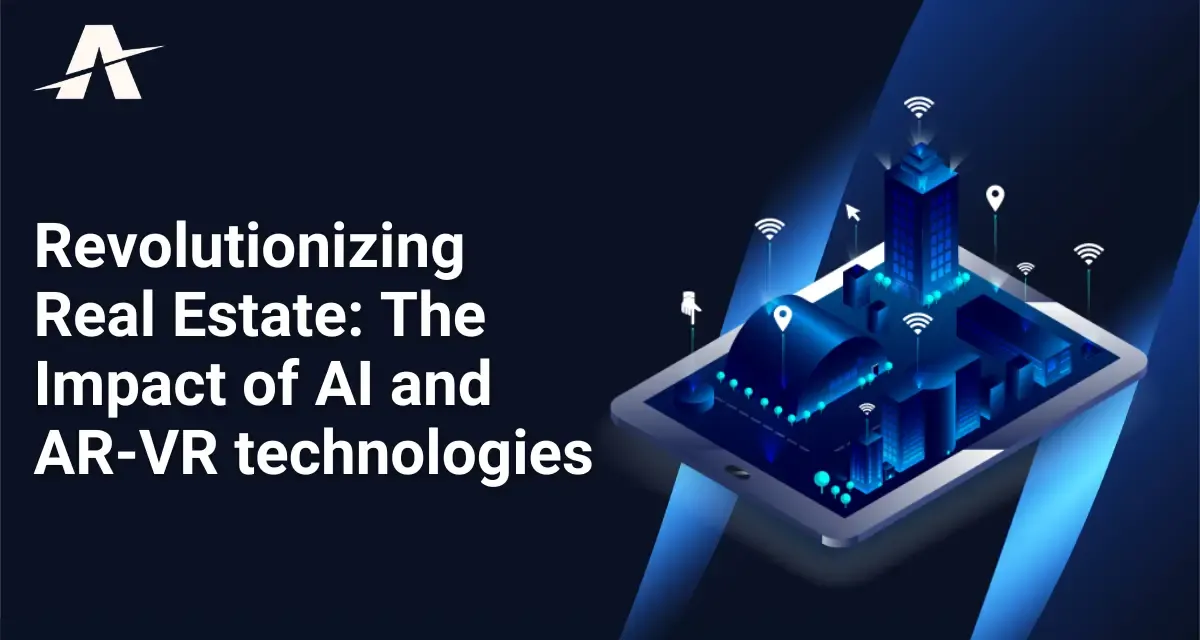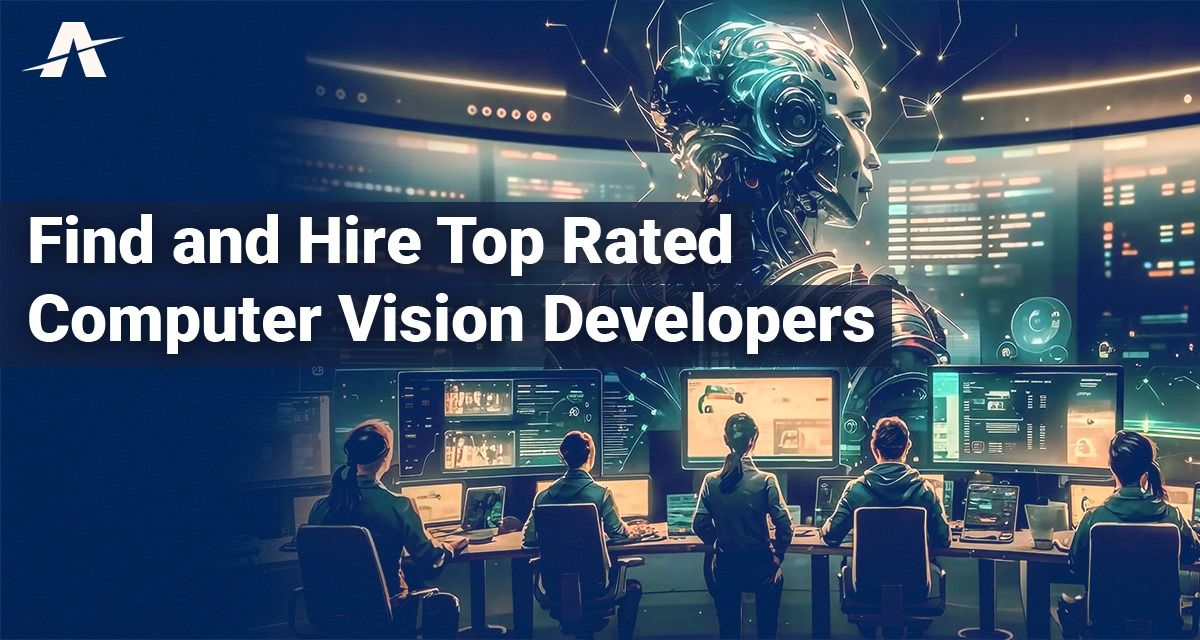
The Real Estate Industry
The homes we live in, the offices we go to, the schools and colleges, the shopping malls, the movie theatres, the hospitals are all intrinsically real estate industries. This industry encompasses a wide range of activities, sectors and stakeholders that are involved in the development, acquisition, management and transaction of properties which includes buying, selling, leasing, financing, and managing residential, commercial, industrial and land properties.
These are the sectors within the real estate industry:
1. Residential Real Estate
2. Commercial Real Estate
3. Industrial Real Estate
4. Land Development
5. Real Estate Investment
6. Real Estate Brokerage
7. Property Management
8. Real Estate Finance
9. Real Estate Technology (Proptech)
The real estate industry has undergone significant evolution over time which has been influenced by various factors such as economic trends, technological advancements, demographic shifts and now the AI digital revolution( and so the regulatory changes).
Lets overview its evolution and current market conditions:
1. Historical Evolution:
Pre-Industrial Era: Real estate transactions in this era were primarily local and informal with very limited or no regulations and standardization.
Industrialization: Urbanization and industrialization have led to the rise of formal real estate markets with property rights and clear legal frameworks for land ownership and estate development.
Post-World War II: Suburbanization and mass homeownership became prevalent in this era which was fuelled by government policies such as mortgage subsidies and lucrative urban planning initiatives.
Digital Revolution: The advent of the internet and the online platforms and now the AI revolution with its AR-VR features is transforming the way properties are marketed, searched and transacted which is leading to greater transparency, accessibility, and efficiency in real estate transactions.
2. Market Conditions:
Supply and Demand Dynamics: Real estate markets are totally and completely influenced by supply and demand dynamics which includes factors such as population growth, housing affordability, employment opportunities and the infrastructure development of the area.
Economic Cycles: Real estate markets are cyclical and are prone to be affected by the broader economic trends such as the interest rates, inflation, GDP growth and the consumer confidence. The Boom and bust cycles always impact property prices, demand for housing and the subsequent investment activity.
Urbanization Trends: Urban areas continue to attract population growth and investment which leads to increased demand for housing, commercial properties and more infrastructure development in cities and the other metropolitan regions.
Technology Adoption: Technology adoption is reshaping the real estate industry rapidly with interesting innovations such as AI, AR-VR, blockchain and smart home devices that offer new opportunities for efficiency, customization and an enhanced customer experience.
Sustainability and Resilience: Growing awareness of environmental issues our world faces and the climate change is driving the demand for sustainable and resilient real estate developments which includes green buildings with solar energy efficient technologies and climate-resilient design principles.
The real estate industry is continuing to evolve in response to these changing market conditions, technological innovations and societal trends presenting both challenges and opportunities for stakeholders involved in property development, investment and transactions.
Let us see the transformation in the real estate industry in detail.
One thing noteworthy brought by AI and AR-VR in the real estate industry is in the way information is accessed and experienced. AI simply enables personalized recommendations and predictive analytics that cater to individual preferences and needs which enhances the decision-making process for buyers and even the sellers. On the other hand, the AR-VR technologies also offer immersive experiences which furthers the users to virtually explore properties and visualize its changes in real-time resulting in more informed decisions without the need for physical visits.
Clearly these technologies streamline processes, reduce costs and improve customer satisfaction by transforming the way real estate transactions are conducted.
How has the real estate's residential sector changed since AI AR-VR implementations
The residential real estate sector has been undergoing significant changes and advancements since the implementation of AI AR-VR technologies. These technologies are transforming various aspects of the residential real estate market which includes property search, marketing, sales and thus customer experiences.
Let’s see some key changes in the residential sector:
Key characteristics of these distributed ledgers are:
Virtual Property Tours:
AI AR-VR technologies are revolutionizing the way residential properties are showcased to potential buyers and renters. Virtual property tours now allow users to explore homes remotely and in 3D which offers immersive experiences that are at par with the physical walkthroughs. This is enabling more efficient property viewings, especially for out-of-town and international buyers.
Augmented Reality for Home Staging:
The integration of AR technology to digitally stage vacant homes with virtual furniture, decor and design elements is allowing sellers to enhance the visual appeal of their properties and is also helping buyers visualize the potential of the space which has been leading to faster sales and higher offers.
Personalized Property Recommendations:
AI algorithms are capable of analyzing buyer preferences, behavior, and search history, thus easily providing personalized property recommendations customized to the buyer's needs and preferences. This enables users to discover relevant listings more efficiently, thereby reducing the time spent searching for their perfect home.
Predictive Analytics for Pricing:
AI-powered pricing models analyze vast amounts of market data, property attributes and historical trends for generating accurate property valuations and pricing recommendations. This greatly helps sellers in setting competitive prices and optimizing their listing strategies which is statistically leading to quicker sales and higher returns.
Automated Customer Support:
AI-driven chatbots and virtual assistants are programmed to provide instant support and also to answer inquiries from buyers, sellers and renters about the data available on the real estate websites and platforms. These bots can effectively schedule property viewings and provide information about listings which is improving customer service and engagement.
Remote Transaction Management:
AI-powered platforms facilitate remote transaction management for real estate transactions which is inclusive of digital document signing, contract negotiation and also includes escrow management. This streamlines the buying and selling process especially for the clients who cannot meet in person.
Market Insights and Trends:
AI algorithms are also programmed to analyze market data and trends for providing insights and predictions for residential real estate professionals. This feature enables agents, brokers and also the investors in making informed decisions about pricing, marketing strategies and investment opportunities.
Enhanced Buyer Experience:
AI AR-VR technologies totally enhance the buyer experience by providing informative immersive, interactive and absolutely personalized interactions throughout the home buying journey. From scheduling virtual tours to customizing property recommendations, these technologies are making this process more efficient and enhanced for buyers.
Top real estate companies worldwide
The top real estate companies worldwide have now embraced AI, AR-VR technologies for enhancing their offerings and providing innovative solutions to their customers.
Let’s see are some of the leading names:
CBRE Group, Inc. (United States)
CBRE certainly is one of the largest commercial real estate services and investment firms globally. They have been deploying AI and data analytics for their market research, property valuation and even for their predictive modelling. Additionally, they have also been actively using AR-VR technology for conducting virtual property tours and visualization.
JLL (Jones Lang LaSalle Incorporated) (United States)
JLL is a top global real estate services firm offering a wide range of services which includes property management, leasing, investment management and also advisory. They have been utilizing AI algorithms for market analysis, tenant insights and also for property management optimization as well as AR and VR technologies for property visualization and marketing.
Colliers International Group Inc. (Canada)
Colliers is also a leading global real estate services and investment management company. They are utilizing AI-powered platforms for market research, predictive analytics and for gaining client insights and AR-VR solutions for property presentations and virtual tours.
Cushman & Wakefield (United States)
Cushman & Wakefield is a top global real estate services firm that offers brokerage, property management and investment services. They have been deploying AI technologies for market forecasting, property valuation and also for tenant engagement while using AR-VR tools for immersive property experiences.
Savills plc (United Kingdom)
Savills is a top global real estate services provider specializing in brokerage, consultancy and property management. They have been utilizing AI-driven analytics for market research, investment analysis and client insights while AR-VR solutions have been deployed for property marketing and visualization.
Knight Frank LLP (United Kingdom)
Knight Frank is a top international real estate consultancy offering residential and commercial property services. They integrate AI algorithms for market intelligence, property valuation and investment advisory while AR-VR technologies are being deployed for property presentations and virtual tours.
Prestige Group (India)
Prestige Group is a top real estate developer of residential, commercial, retail and hospitality projects in India. They have been implementing AR-VR technology for interactive property showcases and also for augmented reality experiences.
DLF Limited (India)
DLF Limited is one of the largest real estate developers in India sporting a diverse portfolio of residential, commercial and retail properties. They have been utilizing AR-VR technology for conducting virtual property tours and immersive experiences.
Godrej Properties (India)
Godrej Properties is also a prominent real estate developer that has been integrating AI-driven analytics into their sales and marketing strategies for better property recommendations and customer insights.
RE/MAX Holdings, Inc. (United States)
RE/MAX is one of the world's largest real estate franchise networks having a global presence in over 110 countries. They have been deploying AI-powered tools for their lead generation, client communication, and also for market analysis while AR-VR solutions are deployed for property marketing and visualization.
These companies are just a few examples of the top real estate companies worldwide that are implementing AI, AR, and VR technologies for innovating and improving their services for their customers. The implementation of these technologies is expected to continue growing as more and more companies are now seeking to enhance efficiency, transparency and better customer experiences in the dynamic and competitive real estate market.
The difference from the traditional physical visits and the AR-VR now
Let’s see some key differences between traditional physical visits and the use of AR-VR technology in the real estate industry:
Accessibility:
Traditional physical visits necessarily require all potential buyers to travel to each and every property which is very time-consuming and also costly. AR-VR technology is now allowing users to explore properties and visit the properties of their choice remotely from anywhere just with an internet connection thereby eliminating the need for physical travel.
Convenience:
Physical visits to sites require scheduling appointments, coordinating with real estate agents and then travelling to each property. This AI AR-VR technology also offers on-demand virtual tours which allows its users to explore properties at their own pace even without scheduling constraints.
Immersive Experience:
Physical visits provide a first-hand experience of the property but then, they are constrained by the time available and the number of properties that can be visited in a day. AI AR-VR technologies on the other hand is now offering immersive 3D experiences whereby users virtually walk through properties, view every room from different angles and, according to the features available, even visualize potential renovations or furniture placement.
Time Efficiency:
Since these physical visits require visiting multiple properties scheduled over several days or weeks it usually leads to a lengthy and time-taking decision-making process. AI AR-VR technology enables users in narrowing down their choices through virtually touring multiple properties in a short amount of time thereby accelerating the decision-making process.
Cost Savings:
Physical visits always incur expenses which include transportation costs, accommodation (if travelling to another city) and also the potential time off work. Through AI AR-VR technology eliminates these costs and is making property exploration more affordable for buyers.
AI AR-VR technology in every way offers a more accessible, convenient, immersive and undoubtedly a more cost-effective alternative to the traditional physical visits in the real estate industry.
Regulations and compliance requirements
With the amount and kind of sensitive data that are the fundamental requirements to build a fully functional real estate website that applies AI implementation on its platforms, it does not surprise that there are many frameworks of regulations for protecting the data and ensuring accountability because with all this important personal data, privacy, fairness, transparency and ethical use of sensitive information is mandatory.
Lets see some of the regulations and compliance requirements and key considerations:
Data Privacy:
The Real estate platform with AI implementation which collects, processes and stores personal data has to comply with data privacy regulations such as the General Data Protection Regulation (GDPR) in the European Union, the California Consumer Privacy Act (CCPA) in the United States and similar laws in other jurisdictions. These regulations come inclusive of obtaining consent from users for collecting and using their data while implementing appropriate security measures for protecting their data and providing the users with all the rights to access, rectify and delete their personal information on will.
Fair Housing Laws:
Real estate platforms implementing AI technologies have to comply with fair housing laws and regulations that prohibit any discrimination based on race, colour, religion, sex, national origin, disability or familial status in housing-related transactions. AI algorithms that are being used for property recommendations, pricing and tenant screening must necessarily be designed and implemented in such a way that they avoid all bias and ensure fair treatment for all users.
Transparency and Accountability:
It is mandatory for Real estate platforms to provide transparency into how AI algorithms work which includes their data sources, methodologies and the assumptions used to generate recommendations or decisions. Users are also to be informed about the use of AI and should have access to explanations and recourse mechanisms in case of errors, biases and any adverse impacts.
Ethical Considerations:
Real estate platforms with AI integration are supposed to strictly adhere to ethical principles and guidelines for the responsible use of AI which includes respect for human rights, fairness, accountability, transparency and non-discrimination. These considerations also involve establishing a few ethical review boards who are responsible for conducting impact assessments and also implementing safeguards to prevent any harm or misuse of the deployed I technologies.
Regulatory Compliance:
The Real estate platforms are to comply with all the industry-specific regulations and standards that are applicable to the use of AI in real estate which includes licensing requirements for real estate agents and brokers, advertising regulations and also regulations pertaining to consumer protection laws.
On mandatory adherence of these regulations and compliance requirements real estate platforms do truly ensure that their AI implementations are ethical, fair, transparent and compliant with legal and regulatory obligations which builds the required trust with users and stakeholders and mitigates the risks of legal and reputational harm.
Is it different for the commercial sector?
Actually Yes, the implementation of AI, AR-VR technologies in the commercial real estate sector differs from the residential sector in many ways basically due to the unique characteristics and requirements of commercial properties.
Let’s see some key differences:
Property Usage and Stakeholders:
The Commercial properties are absolutely used for business purposes such as offices, retail stores, industrial facilities and also as hospitality venues whereas residential properties are primarily used for housing. Commercial real estate transactions tend to involve many stakeholders which may include businesses, investors, developers, landlords, tenants and could also include property managers whereas in comparison the residential transactions typically involve individual buyers and sellers.
Property Features and Requirements:
Commercial properties have unique facets and requirements like zoning regulations, building codes, accessibility standards and unique infrastructure needs that require professional analysis and expertise when compared to residential properties. The properties usually have requirements of customization and tenant improvisations to incorporate specific business needs while residential properties are more standardized in their layout and design.
Decision-Making Processes:
Commercial real estate decisions are driven by financial considerations, investment objectives and business requirements while the residential decisions may be influenced by lifestyle preferences, family needs and emotional factors. Commercial property investments tend to involve complex financial analysis, risk assessment and elaborate due diligence processes when compared to residential purchases.
Market Dynamics and Trends:
Commercial real estate markets have typical dynamics and trends like office vacancy rates, retail sales volumes, industrial demand and hotel occupancy rates which require specialized AI algorithms and its predictive models for such kind of analysis and forecasting. Commercial property lease and sales transactions are more often than not involving longer-term commitments, negotiation processes and legal considerations while in comparison the residential transactions are generally for 11 months.
Tenant Experience and Services:
Commercial tenants have different requirements and expectations in comparison to the residential tenants which generally pertain to access to amenities, technology infrastructure, security services and facility management support. Commercial property owners and managers do utilize AI, AR-VR technologies for enhancing their tenant experiences through smart building systems, digital concierge services and interactive tenant portals.
While AI, AR-VR technologies does offer opportunities for integration and efficiency in both the residential and commercial real estate sectors, the implementations vary based on their unique characteristics, stakeholders and requirements of each sector.
Changes in the commercial real estate sector on integrating with AI AR-VR technologies
The commercial real estate sector has been seeing significant changes and advancements in its AI, AR-VR implementation which is leading transformative impacts on property development, investment, leasing and even on management.
Let’s see some key changes in the commercial real estate sector:
Virtual Property Tours:
Commercial real estate firms who are now using VR technology offer virtual property tours that allow its potential tenants and investors to explore their office spaces, retail properties and industrial facilities remotely in 3D. This feature is enabling more efficient property viewings and decision-making processes especially for international or remote clients.
Augmented Reality for Space Visualization:
AR technology is now also being used for enhancing space visualization and interior design planning for commercial properties. Potential tenants and buyers use AR apps to overlay these digital models and furniture onto physical spaces to help them visualize layouts and configurations to utilize their customization options.
Data-Driven Decision Making:
AI-powered analytics platforms are now deployed to analyze large datasets related to market trends, property performance, tenant preferences and demographic shifts. This enables the commercial real estate professionals to make more informed investment decisions, optimize portfolio strategies and also identify lucrative opportunities.
Smart Building Management:
AI technologies are now being integrated into building management systems for optimizing energy efficiency and automating maintenance processes to enhance tenant experiences. Smart sensors, IoT devices and predictive analytics algorithms are enabling proactive monitoring, predictive maintenance and customized services for occupants.
Lease Negotiation and Management:
AI-powered tools are seamlessly streamlining lease negotiation and management processes for commercial real estate professionals wherein Natural language processing (NLP) algorithms analyze the lease agreements while identifying key terms and clauses and then provide insights to facilitate negotiations while also ensuring compliance with regulatory requirements.
Predictive Maintenance:
VR simulations of AI algorithms are being utilized to predict equipment maintenance needs in commercial properties. Virtual simulations of building systems and components alert and enable predictive maintenance planning, reducing downtime, minimizing costs and optimizing building performance.
Tenant Experience Enhancement:
AI-driven chatbots and virtual assistants are being deployed for enhancing tenant experiences in commercial properties. Chatbots are equipped to provide instant support, they answer inquiries and also facilitate service requests while virtual assistants offer clients personalized recommendations, event scheduling and concierge services for tenants.
Risk Management and Compliance:
AI-powered risk management platforms are now assisting the commercial real estate firms in assessing and mitigating risks related to property investments, leasing agreements, regulatory compliance and various environmental factors. Predictive analytics algorithms help identify potential risks and also recommend strategies to mitigate them which greatly improves decision-making and portfolio performance.
Market Insights and Trends:
AI algorithms are proficient in analyzing market data and trends for providing valuable insights and predictions to the commercial real estate professionals. This helps agents, brokers and investors to make data-driven decisions about pricing, marketing strategies and investment opportunities which increases their competitive advantage and profitability.
The AI, AR-VR implementations in the commercial real estate sector are revolutionizing property development, investment, leasing and its management processes towards increased efficiency, transparency and innovation. These technologies are empowering commercial real estate professionals to adapt easily to evolving market conditions while enhancing tenant experiences and driving value for the stakeholders involved in the commercial real estate sector.
From a seller's point of view, AI and AR-VR technologies offer several advantages and opportunities in the real estate industry:
Enhanced Marketing:
AI algorithms accurately analyze market trends and buyer preferences and develop targeted marketing strategies which effectively showcases the property's unique features and generates appeal to the right audience.
Virtual Home Staging:
AR technology now allows sellers to digitally stage their properties with furniture and decor which effectively showcases the potential of the space by making it more attractive to potential buyers without actual need for physical staging.
Remote Property Showings:
AR-VR technologies are now enabling virtual property tours which allows sellers to showcase their properties to potential buyers remotely in 3d. These features are expanding the reach of their listings which is resulting in an increasing likelihood of attracting the interested buyers.
Faster Sales Process:
By utilizing the AI-powered chatbots and the automated response processes, the sellers can now respond to inquiries instantly, schedule property viewings efficiently and also facilitate negotiations more effectively which results in a faster sales process.
Accurate Pricing:
AI-powered Automated Valuation Models (AVMs) are now providing sellers with accurate property valuations that are based on market data and trends which is helping them set competitive prices and maximizing their returns on investment.
Fraud Prevention:
AI algorithms are capable of detecting fraudulent activities such as fake listings or identity theft which protects sellers from scams and ensures the integrity of the real estate transaction process.
Streamlined Operations:
AI systems efficiently automate repetitive tasks like scheduling appointments, managing inquiries and tracking leads, this does free up sellers' time and resources for focusing on other aspects of the sales process.
AI and AR-VR technologies while offering sellers innovative tools and strategies to effectively market their properties also attract potential buyers, streamline operations and maximize their chances of a successful sale.
From both the buyer's and seller's perspectives, there are several challenges in the implementation of AI and AR-VR technologies in the real estate industry:
Challenges from the Buyer's Perspective:
Accessibility:
Even with the advancements we have made, not all interested buyers may actually have access to the necessary technology required to fully utilize AR-VR platforms for property exploration.
User Experience:
The user experience of AR-VR platforms varies in terms of ease of use, navigation and overall immersion which is bound to affect the effectiveness of virtual property tours and the decision-making process for buyers.
Privacy Concerns:
Many Buyers have concerns about privacy and data security while using AI-powered platforms that requires collecting and analyze personal information for providing personalized recommendations and services.
Accuracy and Reliability:
There is a percentage of Buyers who question the accuracy and reliability of AI-powered Automated Valuation Models (AVMs) and the features of predictive analytics that predict property values and market trends which leads to uncertainty in decision-making.
Challenges from the sellers perspective
Implementation Costs:
Implementing AI and AR-VR technologies in real estate operations does require a significant amount of upfront investment in hardware, software, training and also in integration with the existing systems which does prohibit some sellers especially individual homeowners.
Content Creation:
Creating the high-quality virtual tours, 3D models and augmented reality experiences for properties requires specialized skills and resources which also includes professional photography, videography and digital staging, this aspect poses a challenge for sellers lacking the necessary expertise or budget.
Technical Support:
Sellers may encounter technical issues and challenges while using AI-powered platforms and AR-VR technologies. Issues such as software bugs, compatibility issues and connectivity problems could disrupt the sales process and negatively impact customer satisfaction.
Adoption and Acceptance:
Some sellers are simply hesitant to adopt new technologies and to change their traditional practices due to concerns about disruption, resistance from clients and also due to the lack of clarity about its benefits and ROI from AI and AR-VR implementations.
Solutions
Let’s see some potential solutions to scale the challenges faced by both buyers and sellers in implementing AI and AR-VR technologies in the real estate industry:
Solutions for Buyers:
Technology Accessibility:
Providing links to alternative options for exploring the property, options like traditional photo galleries with 360-degree virtual tours which are accessible from a wider range of devices and internet connections. Also offering offline viewing options for AR-VR content shall allow buyers to download virtual tours and explore properties without reliance on continuous internet access.
User Experience:
The suggested solution for this is investing in user interface (UI) and user experience (UX) designs for creating intuitive and immersive AR-VR platforms that are easy to navigate and also provide seamless interactions to buyers. Another suggestion is to incorporate user feedback and usability testing for continuously improving the AR-VR experiences and also addressing any issues or pain points that are identified by buyers in their response.
Privacy Concerns:
Implementing robust data privacy and security measures for protecting buyer information and also ensuring compliance with all relevant regulations like the GDPR and CCPA or complying to the regulations that are specific to the particular region the land is from. Providing transparent information about data collection, usage and storage practices for building trust and reassuring buyers regarding the privacy and security of their personal information.
Accuracy and Reliability:
Providing transparent explanations of how AI-powered AVMs and predictive analytics algorithms work which also includes the data sources, methodologies and the assumptions that are made to generate property valuations and market predictions. Offering access to any other additional expert insights and professional advice to complement the AI-generated recommendations to help buyers make more informed decisions.
Solutions for Sellers:
Implementation Costs:
Exploring the affordable and scalable AI and AR-VR solutions that do offer flexible pricing models like the subscription-based services or pay-per-use plans for minimizing upfront investment and the extra aligning costs with usage. Reaching out government grants, subsidies, or incentives for adopting innovative technologies in the real estate industry to help reduce the implementation costs while encouraging adoption among sellers.
Content Creation:
Providing training and resources to sellers for learning the know-how of creating high-quality digital content for their properties, such as virtual tours, 3D models and augmented reality experiences by using user-friendly friendly tools and software. Offering access to professional content creation services like photography, videography and digital staging with the help of partnerships with third-party providers or even with other integrated platforms.
Technical Support:
Establishing a dedicated customer support channel and trained technical assistance teams to promptly attend and address seller inquiries, troubleshoot any technical issues and provide guidance on using AI and AR-VR technologies effectively. Developing a comprehensive documentation of tutorials and online resources to help sellers navigate and troubleshoot common problems with AI-powered platforms and AR-VR applications.
Adoption and Acceptance:
Educating other sellers about the benefits and advantages of AI and AR-VR technologies in the real estate industry increased visibility, enhanced marketing and improved customer engagement. Showcasing successful stories, case studies, and testimonials of early adopters to demonstrate the positive impact of AI and AR-VR implementations on sales performance, customer satisfaction and business growth.
Role of AI Development Companies in Real Estate Industry
AI development companies by their professional expertise and experience play a pivotal role in the real estate industry providing them with innovative solutions and technologies implementing artificial intelligence in addressing the various challenges and opportunities across their value chain.
Let’s see how AI development companies contribute to the industry:
Custom AI Solutions:
AI firms build artificial intelligence tools tailored to real estate businesses. They make systems that forecast trends, recommend listings, chat as virtual agents, and more. AI solutions adapt to each company's unique goals - helping analyze data, enhance client services, and automate tasks.
Data Analysis and Insights:
AI development companies assist the real estate companies analyze vast amounts of data which includes property listings, market trends, demographic information and the data pertaining to customer behaviour for extraction of valuable insights and a thoroughly informed strategic decision-making.
Automation and Efficiency:
AI development companies have the expertise to easily automate repetitive tasks and processes in real estate operations. Tasks such as lead generation, customer support, property valuation and transaction management are automated to improve efficiency, reduce costs and also free up resources for higher-value activities.
AR-VR Technologies:
AI development companies also develop augmented reality (AR) and virtual reality (VR) applications and platforms which enable immersive property visualization, virtual staging of property and also programing remote property tours to enhance the buying and selling experience for both buyers and sellers.
Fraud Detection and Security:
AI development companies easily deploy algorithms and machine learning models to detect fraudulent activities such as fake listings, identity theft and also mortgage fraud to help to maintain the integrity of the real estate market and also protect their consumers from scams.
Innovation and Research:
AI development companies are well Known to drive innovation in the real estate industry by continuously researching and developing new AI-powered technologies, algorithms and applications that address the emerging challenges in this industry.
AI development companies play a vital role in driving digital transformation and innovation in the real estate industry, empowering businesses to optimize the power of artificial intelligence and improve operational efficiency while enhancing customer experiences and driving business growth.
Forecasting
The growing implementation of AI in the real estate industry is absolutely poised to continue expanding and evolving in the coming years. With a growth that is driven by technological advancements, the changing consumer behaviours and our increasing demand for efficiency and innovation. Based on the current trends let’s see some predictions and forecasts for AI implementation in the real estate industry:
Enhanced Personalization:
AI algorithms are all set to become increasingly sophisticated in analyzing buyer’s and renter’s preferences, their behaviour and demographics to provide more personalized recommendations and experiences that are precisely customized to their unique needs and preferences.
Smarter Decision-Making:
AI-powered predictive analytics shall soon be playing a larger role in helping investors, developers and other real estate professionals make data-driven decisions about property investments, pricing strategies, market trends and their portfolio optimization.
Seamless Customer Experience:
AI-powered chatbots, virtual assistants and self-service platforms will soon be more prevalent in providing instant support, answering inquiries, scheduling appointments and also in facilitating transactions to deliver a seamless and a very responsive customer experience.
Augmented Reality Revolution:
AR-VR technologies are going to further revolutionize property exploration by allowing buyers and renters to virtually tour properties, visualize renovations and experience spaces in 3D which would surely be leading to more immersive experiences with thoroughly informed decisions and a reduced reliance on physical visits.
Automation of Processes:
AI technologies will be continuing automating repetitive tasks and processes in real estate operations too. Tasks such as lead generation, property management, marketing campaigns and even the transaction coordination would soon be automated which would improve efficiency and reduce operational costs.
Integration with IoT and Smart Home Devices:
AI is forecasted to increasingly be integrating with Internet of Things (IoT) devices and smart home technologies enabling intelligent automation, predictive maintenance, energy efficiency optimization and even personalized home experiences for all residents.
Ethical and Regulatory Considerations:
With the increase in AI adoption there shall surely be greater emphasis on its ethical use, transparency and also on its accountability, be it the AI algorithms or the applications, also mandatory would be compliance with data privacy regulations and fair housing laws.










